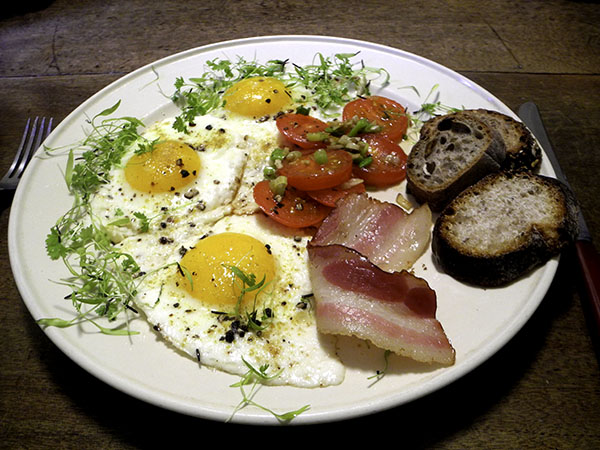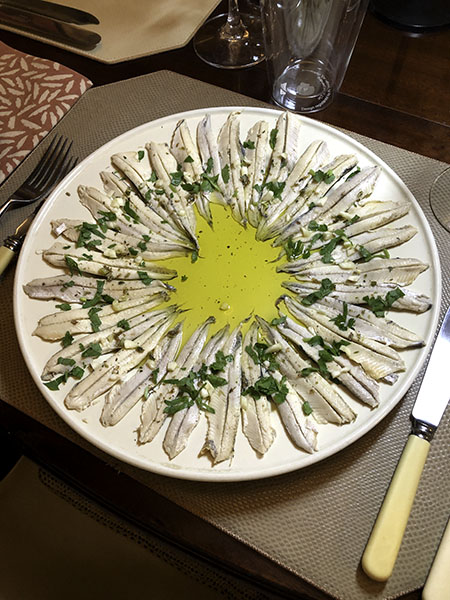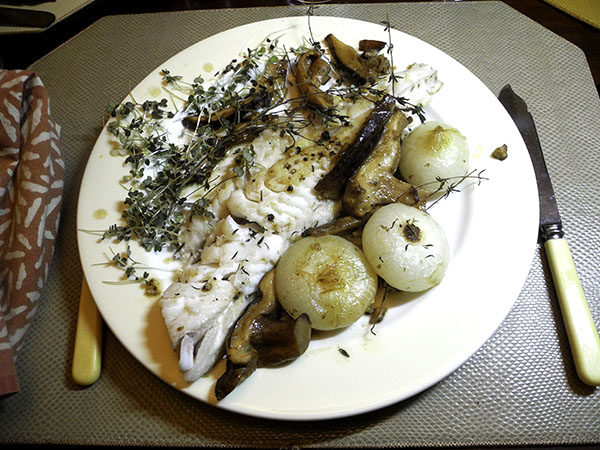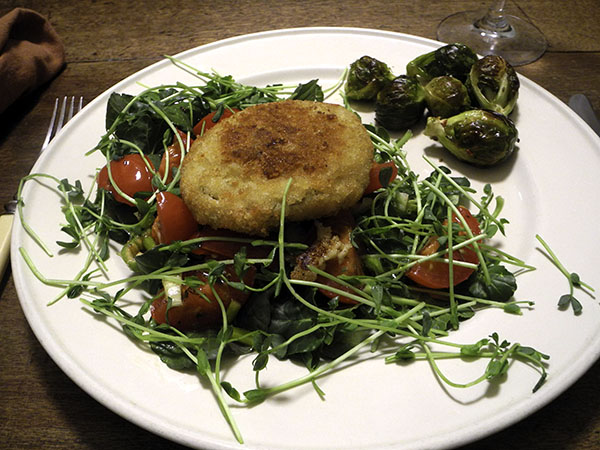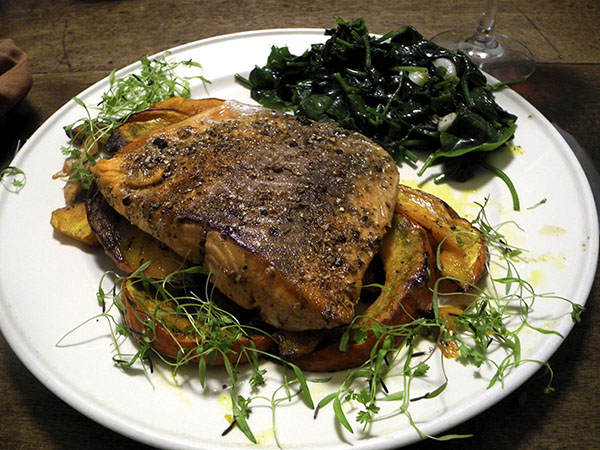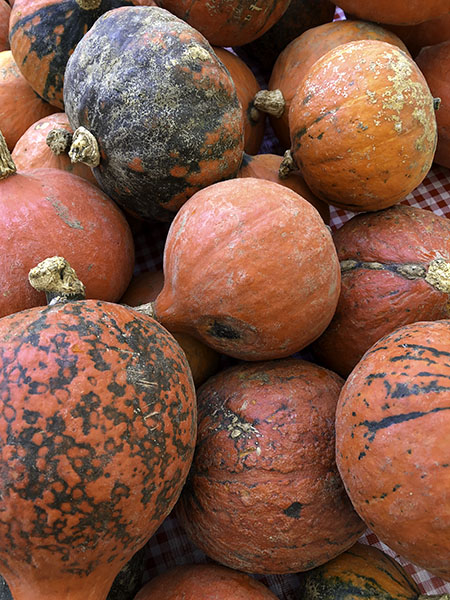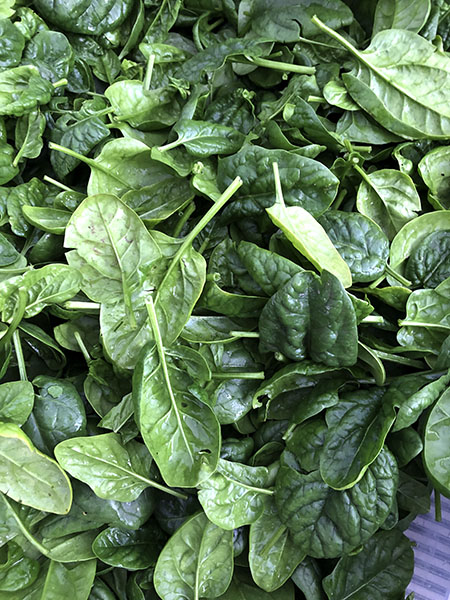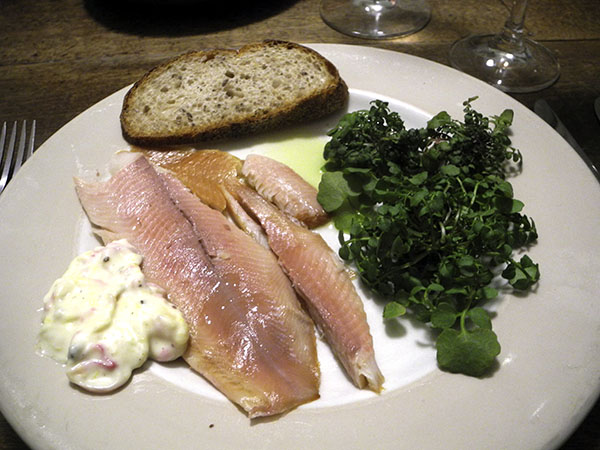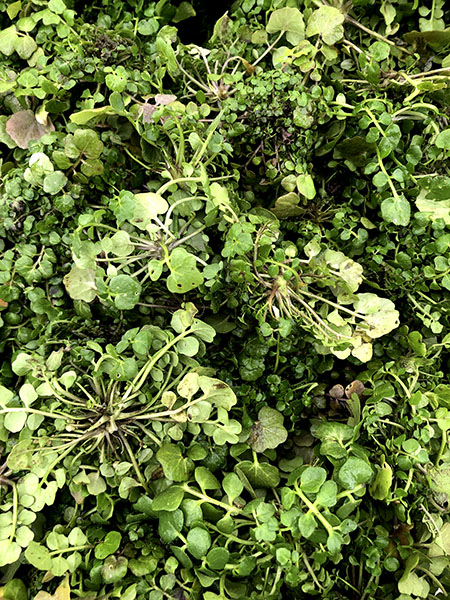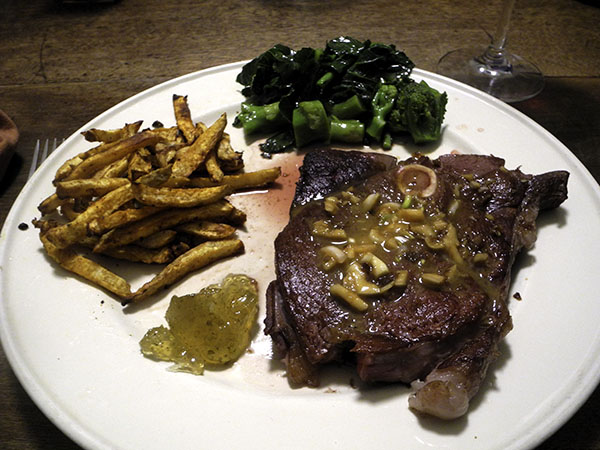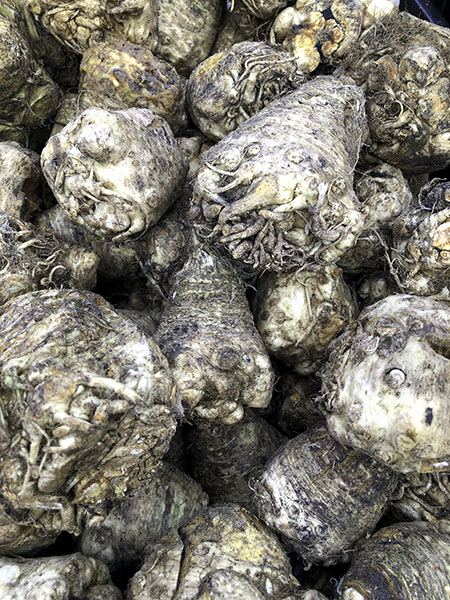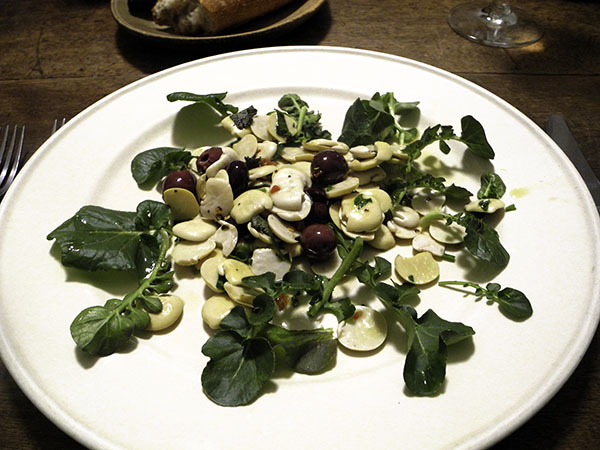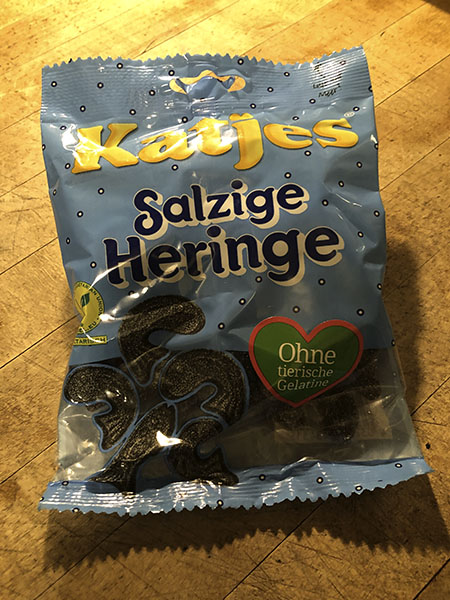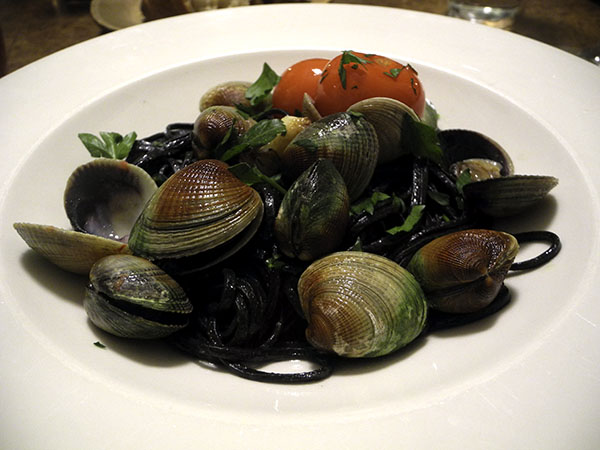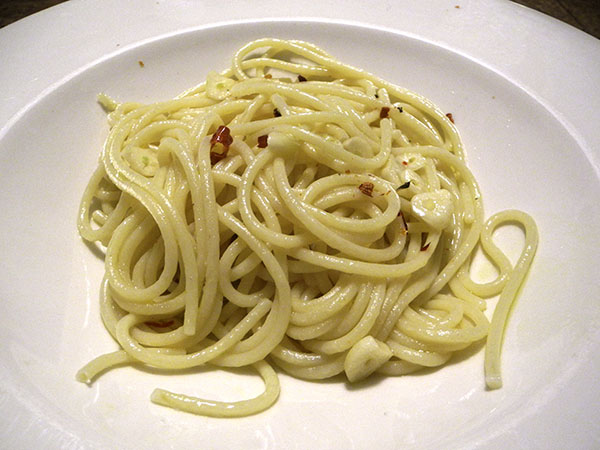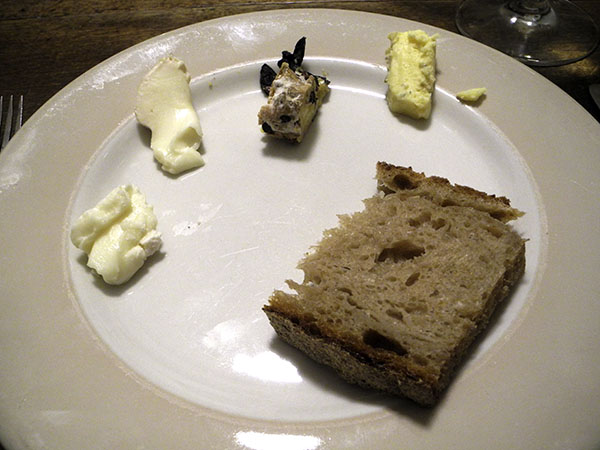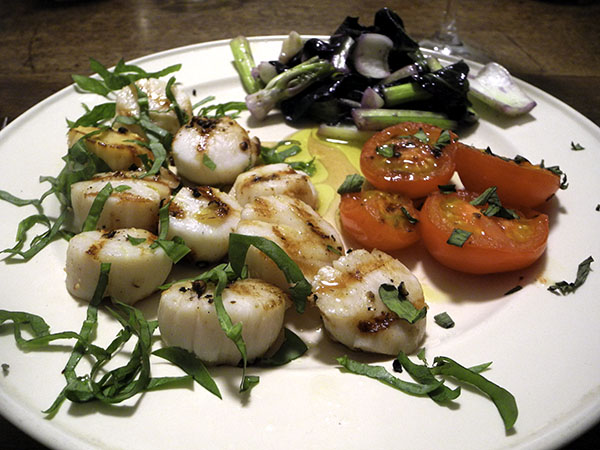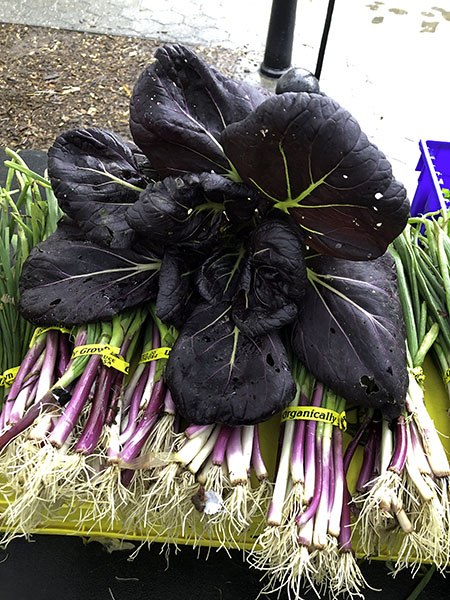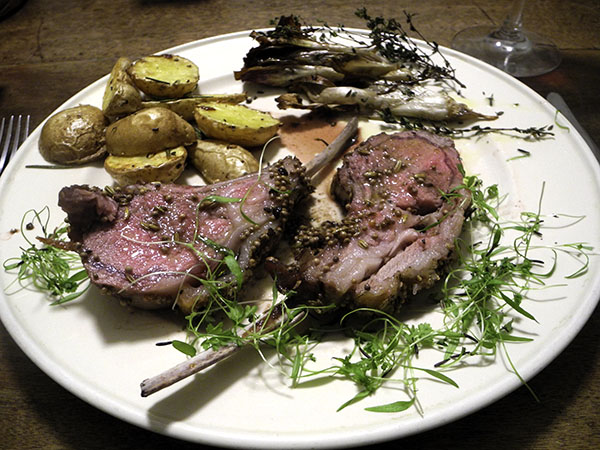
We don’t really celebrate Christmas, except culturally, which always means there’s a place for a special meal and a special wine. This was only the night before the night before Christmas, and so while it was a special meal and a special wine, the occasion was probably more that of the Sunday thing. We also don’t really celebrate Sundays, except as the Germans do, meaning as a day not like the other days of the week, and one which should include a good meal.
The problem with this routine, and this account is, first, the fact that I cook almost every night, second, that it’s largely chance that determines what the meal will be (what might be available at the farmers market on a particular day), and, third, that I can’t actually know in advance when a dinner is going to turn out well, or especially well.
This past Sunday really was unlike other days, and the meal was special, because I managed to put an excellent small rack of lamb on the table, and because I somehow managed to cook it perfectly. Although it was produced by local farmers in the Hudson Valley, I didn’t buy it at the Union Square Greenmarket, but from Eataly Flatiron, 2 blocks east of us. They have an excellent meat department, with most its stock locally sourced (may I describe their guys as neighborhood butchers?).
I still feel a little guilty, because I want to patronize the farmers in the Greenmarket as much as I can. But on that day I hadn’t planned ahead at all, and didn’t have anything in the apartment that I wanted to present for dinner. For a day or 2 I had been thinking about some good chicken, especially since I had some special vegetables that would show well with chicken, and that’s how I found myself at Eataly in the middle of the afternoon. Their broilers however were too large, the breast parts that I saw were unfortunately boned and skinless, and we had enjoyed their excellent Cascun Farms thighs only recently. Now I was stumped.
Then looked inside the meat counter itself and there I saw a single, very beautifully-frenched quite small rack of lamb peeking out from behind a store tag showing both an impressive description of origin and an impressive price. The lamb, it turned out, when I asked the butcher to check, weighed a little more than I had hoped it would, but it was now too late to blink. I bought it and I’m delighted to say that it turned out to be probably both the tenderest and most delicious lamb I’d ever had, whether at home or elsewhere.
I guess sometimes you do get what you pay for.
- a one-pound Kinderhook Farm frenched rack of lamb (Dorper breed) purchased from Eataly Flatiron that afternoon, brought to room temperature, then, when the oven had been set to 475º, seasoned generously with sea salt and freshly-ground black pepper while one tablespoon of olive oil was heated inside a small heavy, oval enameled cast iron pan until it was hot but not smoking, the lamb placed inside to brown, for about one minute per side, the arced, bone side down first, followed by all the other surfaces in turn, removed and most of the fat poured out, all sides of the rack except for the ends then rolled inside a shallow bowl which held a mixture of less than 2 tablespoons of whole yellow mustard seeds and 2 full teaspoons of Sicilian fennel seeds (both toasted together earlier inside a large quite vintage seasoned cast iron skillet over medium heat until they had become fragrant and, in order to cool slightly, had been immediately transferred to the bowl in which the lamb was to be rolled, the meat now returned to the pan in which it had been seared, arced side down, transferred to the oven (now lowered to 375º), roasted until a thermometer inserted into the center of the lamb registered 135º, or medium-rare (roughly 15-20 minutes), at which time the pan was removed from the oven and allowed to stand on top of the range for at least 10 minutes, when each of the 2 sections were cut into 2 chops, which were arranged on the plates, drizzled with a little Whole Foods Market lemon juice and some Whole Foods house Portuguese olive oil, and garnished with micro chervil from Two Guys from Woodbridge [the excellent and pretty simple recipe I used began with Martha Stewart]
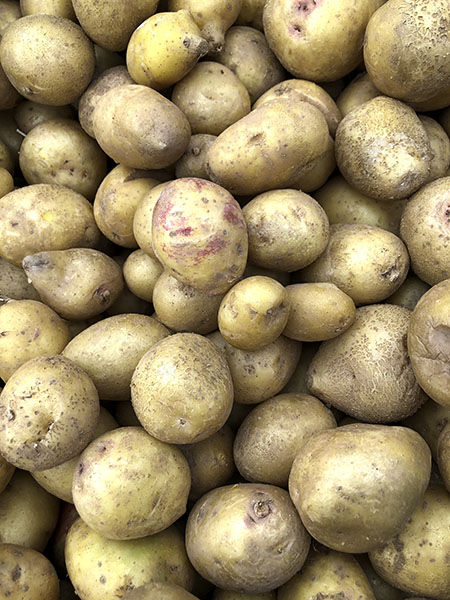
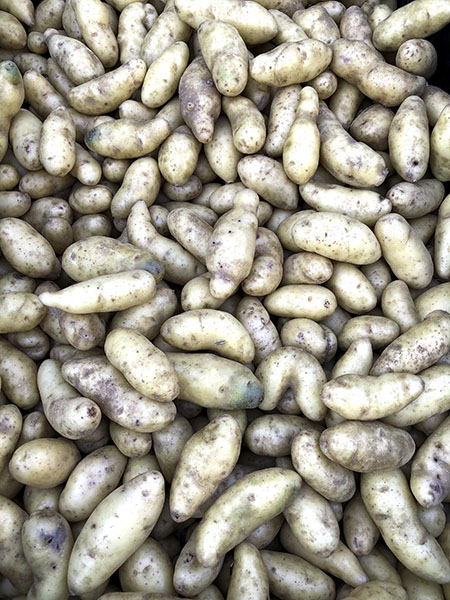
- a 10-ounce mix of round baby Yukon gold potatoes from Race Farm and oblong la ratte potatoes from Norwich Meadows Farm, scrubbed, skins left on, halved, tossed with a little olive oil, sea salt, freshly-ground black pepper, rosemary leaves from Phillips Farm, and a bit of dried habanada pepper, arranged, cut side down, on a medium well-seasoned Pampered Chef unglazed ceramic pan, roasted at temperatures averaging 400º for about 25-30 minutes
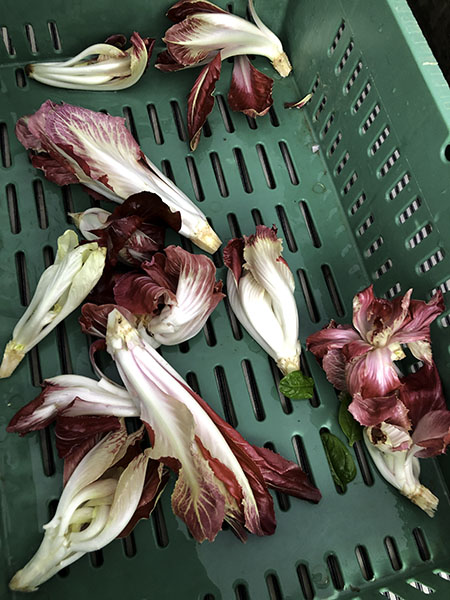
- halved sections of 2 ‘heads’ (almost the very last in their tub) of what Chris and Jessi of Campo Rosso Farm have dubbed, ‘Rosa di Campo Rosso’, their own cross-breed[?] radicchio (it seems somewhat related to tardivo), tied with butcher’s string, tossed with a little olive oil, sea salt, and freshly-ground black pepper and arranged, with branches of thyme from Willow Wisp Farm on the top, inside a small unglazed seasoned Pampered Chef unglazed ceramic oven pan, roasted at 400º for about 12-15 minutes, turning once, finished with a very small splash of balsamic vinegar [note: the radicchio can be served either hot or warm, so it’s an excellent low-stress accompaniment for many different meats or fish]
- the wine was a French (Pomerol) red, Château Moncets, Lalande de Pomerol 2012, (merlot, cabernet franc, cabernet sauvignon) from Astor Wines
- the music was Rossini’s 1817 opera, ‘La Cenerentola’, with Riccardo Chailly conducting
the Bologna Teatro Comunale Orchestra and the Bologna Teatro Comunale Chorus, with Cecilia Bartoli as Cinderella
